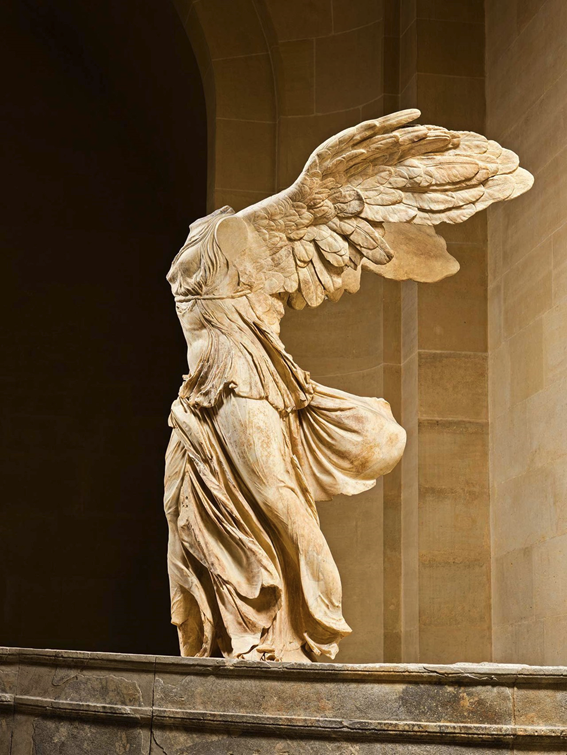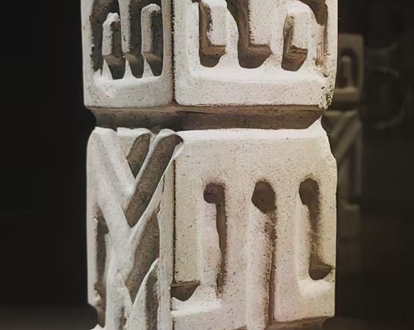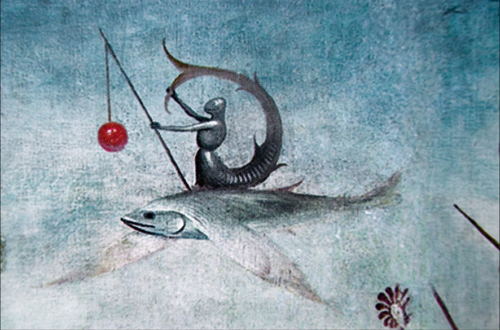julio 21, 2023
Relational and Social Constructionist Consortium of Ecuador (IRYSE)
Diego Tapia Figueroa, Ph.D. y Maritza Crespo Balderrama, M.A.
“…the complexity and multidimensionality of people, their relationships, and circumstances nurture creativity and promote emergent processes, possibilities, and innovation… We consider generative dialogue as prospective research that builds futures, and the unfolding of a generative process and its implementation as a creative pragmatism aimed at creating resources and possibilities in the present to build innovative futures in the face of the difficulties and hopes expressed in the consultation. This pragmatism is reflexive since the participants can recognize and review both their transformations and their novel knowledge… It is about formulating new meanings, unprecedented arguments, and different ways of narrating a situation”.
(Dora Fried Schnitman, 2020a-b, 2021).
We base ourselves for this series, on this thesis, from which we extract -adapting them- the proposals and invitations to a different relational position for the construction of the process of transformative therapeutic dialogue.
How are social constructionism and collaborative and dialogic practices useful for the relational co-construction of space for therapeutic training and supervision? Tapia Figueroa, Diego, Thesis (2018) for the Ph.D. with the Free University of Brussels (VUB) and the TAOS INSTITUTE of the United States.
Different moments in the expression of the multiple voices present in the process
“I think that constructionist authors do not seek to contribute to «the» well-being of humanity as an end, but rather as a process. They seek differently, to keep the dialogue flowing so that we can «continue together» in the «responsible construction of the future».
Carla Guanaes-Lorenzi (2017, personal communication)
Tom Andersen (2005), reformulates this statement by Lev Vygotsky: «We are the voices that have inhabited us.» And he proposes: «Maybe we could slightly modify it to ‘We are the movements that form and manifest the voices that have inhabited us’.»
When we carry out training processes and workshops, each day we begin with generating questions, to facilitate dialogue and enable the emergence of resources and possibilities. The dialogues are given in small groups of three people -when we are about 12 participants- or in groups of 5 people -when we are between 20 and 40 participants-. Among the questions posed are:
● In this process: What caught your attention from what someone on the team said?
● What significant reflection do you take away from this day, and what would you like to share?
● What was new to you in this meeting; and what was different in your relationship with the team today?
● What do you think was most useful for the other participants, for the team?
It is constituted, then, in a different experience: one speaks while practicing and dialogues with practical experiences, and one gives joint meanings, the product of working in small groups that, based on a question, begin to talk and reflect; processing their affinities and diversities. In the eight-hour days of each meeting, the participants could potentially interact with about five different groups, with which they shared and from which they learned and built new relationships.
In the learning space with collaborative/generative dialogues, built with the team of technicians, we are constantly seeking to understand the specific characteristics of the local culture of the participants. Make visible the resources of this culture and the co-investigators, so that creative conversations take place that promote understanding among all, different reflections, and significant learning.
The exercise of thinking with the other is constituted as a process of deconstruction of what is traditionally considered obvious or normal, which opens the questioning and critical gaze, which generates the construction of something socially and relationally different. New versions of each participant appear, resources to share emerge, differences are understood, and diversity is appreciated and valued. A process guided by curiosity (given by the human dialogue that humanizes), in which questions are asked from a position of «not knowing» -of respect precisely- to open the processes and assume joint responsibilities.
Each meeting is the concretion of productive dialogues focused on mobilizing resources, collaborating to learn, participating together, and managing to generate transformative actions in those local contexts; with those specific families, with these specific colleagues.
This process gradually became -with the active, creative, reflective participation of everyone, with their openness to dialogue collaboratively/generatively- an invitation, a proposal for a path of transformative dialogue. A conversation with interlocutors that allows us to find more intelligence, more beauty, and more sensitivity in the daily practices of each one.
A relational process to build freedom to think, to dialogue, to move on to significant social actions, generating alternatives, options, and possibilities. In a space for this plurality of voices to dialogue, with curiosity and openness, with a humanly sensitive presence and committed to the well-being of everyone and the environment.
Reflective dialogue groups and transformational processes
The challenge is, from the outset, to give space to the different voices participating in the research. To be able to bring into dialogue all the voices, involved from their culture and their local knowledge; letting the creativity that develops also have its voice.
The reflective groups are organized randomly and as previously mentioned, a participant has the opportunity to share, for one day, in several dialogue groups. In each space, the dynamic begins with the facilitator asking an initial question and stating that it was important (in the small group) that everyone could have space for their words and, at the same time, exercise their active and respectful listening.
Subsequently, already in the extended group, each one exposes their feelings and thoughts on the topic worked on; it could be, for example, something that they wanted to share from what they heard from their colleagues or also, from their own story.
Updated on July 21, 2023
When working in therapy processes, every day we encounter different challenges, which we assume as an invitation to build connections, to generate dialogical relationships capable of providing quality to the lives of the individuals, couples, and families with whom we work in therapy (meaningful conversations, which add quality to our existence). We participate in dialogues, in the stories that are generated between people, as reflective conversation styles.
Since the pandemic, in addition to face-to-face appointments, we work via Zoom, with multiple people and couples, from other cities, other countries, and cultures. Commitment, respect, curiosity, creativity, understanding, trust, professional and relational ethics are the same.
There are processes that, according to the words of the consultants, are hopeful. For example, the person who told us verbatim: “Doing this therapy with you has made me feel and understand that I am a human being, that I deserve respect, that I want a new life. The way you ask the questions makes me aware of my responsibilities, they challenge me and make me think differently. The way they listen to me deeply gives me confidence, security, and understanding of what is important to me and makes me feel capable of mobilizing my strengths. I went from having no purpose to building possibilities. Now I have the joy of living”.
There are others, which may be different -each person and story has its own rhythm, its own time and context and is respected-: “I will no longer be able to continue therapy. I thank you though. Continuing with these conversations here, which are not easy, would mean making decisions to change many or few important things in my relationships, and in my life; and, I feel, that for now, I better not. I know that I said that I needed, that I wanted to transform these things, I already said it. Enough for me for now. Maybe I will never change them. Since I started talking to you, it’s like my whole system of relationships and different contexts has started to move. There are important people in my life, who have asked me and even demanded not to continue with these therapies. They have become dangerous for everyone.”
Also, in the processes of supervision, inter-vision, and professional co-vision -which we maintain with colleagues from different parts of the world- we listen to professionals in the psychology field, loaded with responsibilities that exceed them, exhausted by demands that anguish them, maintaining a kind of «double life”, the apparently “successful” both on a personal/family and professional level; and, in reality, feeling that their work and their own life outside of work, leaves them deeply dissatisfied, worn out, exhausted, bitter; with burnout just around the corner.
As we work as co-therapists (two professionals present at the same time in each session), at the end we usually carry out a micro co-vision/inter-vision process, in which we continue to question ourselves about what these stories -as understood in their contexts- have left us to reflect on, what they questioned us about and what we could return -in favor of their transformation process- to the consultants if they return, about what each one of us contributes or what we could do differently next time.
And it is a way to maintain responsible self-care, to let go of each experience and event in the life of the consultants, to be «free» to be able to connect with the next story; and, to follow our own lives -freed from work issues- without taking them with us.
These therapy processes are a journey, with respectful, creative, and significant questions, which mobilize capacities -from an attitude of permanent amazement- inviting them to be interlocutors who share their desire to learn, open to the new, with hope; the unprecedented question that invites the connection with the difference; incorporating future perspectives.
The joy of contributing so that each traveler generates their own questions with intelligence and relational ethics, with temperance and integrity, with joy, acceptance, and freedom; and, at the same time, that decides responsibly, from reflective pragmatics, learn to live in uncertainty and embrace complexity; generating with others, with a poetic and political sense, dignified transformations, in all relational contexts. If someone reads us, we hope to contribute to these developments of being with others, to build possible futures.
SUGGESTED BIBLIOGRAPHY
Anderson, H. (1999). Conversación, lenguaje y posibilidades. Un enfoque posmoderno de la terapia. Buenos Aires, Argentina, Editorial Amorrortu.
Fried Schnitman, D. (Ed.) (2017), Diálogos para la transformación: desarrollo de proyectos e investigación generativa orientados a la construcción de futuros en Iberoamérica – Volumen 3. Ohio, USA: Ed. A Taos Institute Publication. WorlShare Books.
Fried Schnitman, D. Perspectiva generativa en terapia: de momentos generativos a una pragmática reflexiva, de Dora Fried Schnitman (mayo 14, 2022):
Gergen, K (2016). El Ser relacional. Más allá del Yo y la Comunidad. Bilbao, España: Editorial Desclée de Brouwer, S.A.
Gergen, K (2014). From Mirroring to World-Making: Research as Future Forming, Recuperado de: https://taoslearning.ning.com/groups2/global-relational-research-network/virtual-symposium-2018
IRYSE (2018) Blog del Instituto Relacional y Socioconstruccionista del Ecuador (IRYSE): https://iryse.org/
Mc Namee, S (2016). Resources for Facilitating Differing Worldviews, Taos Institute December 2016. Recuperado de: http://www.taosinstitute.net/Websites/taos/files/Content/5868649/Resources_for_Facilitating_Multiple_Worldviews_(McNamee).pdf
McNamee, S. (2013). La poesía social de la investigación comprometida con la relación. La investigación como conversación. En Deissler, K. & McNamee, S. (Ed) Filo y Sofía en diálogo: la poesía social de la conversación terapéutica (pp. 102-109). Ohio, USA: Ed. Taos Institute Publication.
Shotter, J. (2001). Realidades conversacionales: la construcción de la vida a través del lenguaje. Buenos Aires, Argentina. Editorial Amorrortu.
Tapia Figueroa, Diego, Tesis (2018) para el Ph.D. con la Universidad Libre de Bruselas (VUB) y el TAOS INSTITUTE de EEUU.
7º DIPLOMADO EN PERSPECTIVA Y PRÁCTICA PROFESIONAL DIALÓGICO GENERATIVA 2022-2023. Certificación Internacional Universitario
http://www.fundacioninterfas.org/capacitacion/?p=4427

English translation of Bruno Tapia Naranjo.



